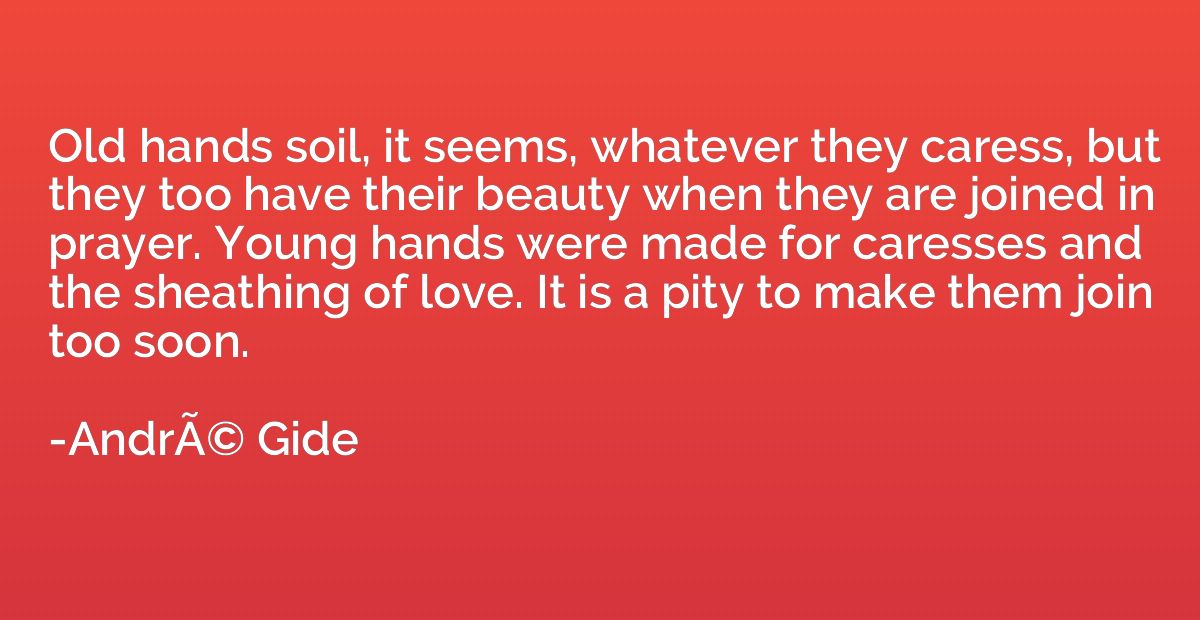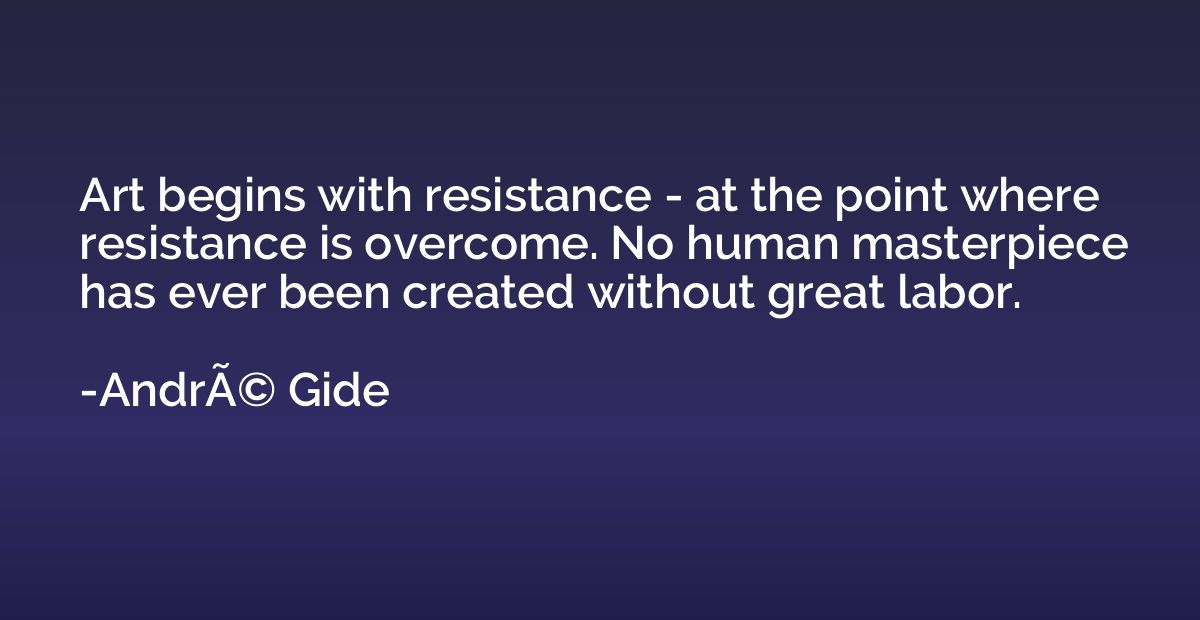André Gide Quotes
A collection of quotes by André Gide.
André Gide (1869-1951) was a French author and Nobel laureate in literature. Born in Paris, Gide grew up in a Protestant household. Throughout his life, he embraced various intellectual and artistic pursuits, including writing, publishing, and travel. He is often remembered as one of the leading figures of French literature in the early 20th century.
Gide's literary career began at a young age when he published his first book of poems at only 19 years old. He rose to prominence with his novel "The Immoralist" in 1902, which tackled themes of sexual and moral liberation. His other notable works include "Strait Is the Gate," "The Counterfeiters," and "The Vatican Cellars." Gide's writings often explored complex moral dilemmas and challenged societal norms, earning him both praise and criticism.
Beyond his literary achievements, Gide was highly involved in political and social activism. He traveled extensively, investigating and documenting the conditions of various colonial territories. This led him to advocate for a more enlightened approach to colonization and condemn the injustices he witnessed.
Gide's literary contributions and his courageous exploration of controversial themes continue to be celebrated. His works have had a significant influence on subsequent generations of writers and thinkers, making him a key figure in French literature and intellectual history.

















